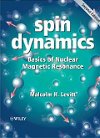NMR Characterization of the Near Native and Unfolded States of the PTB Domain of Dok1: Alternate Conformations and Residual Clusters.
Related Articles NMR Characterization of the Near Native and Unfolded States of the PTB Domain of Dok1: Alternate Conformations and Residual Clusters.
PLoS One. 2014;9(2):e90557
Authors: Gupta S, Bhattacharjya S
Abstract
BACKGROUND: Phosphotyrosine binding (PTB) domains are critically involved in cellular signaling and diseases. PTB domains are categorized into three distinct structural classes namely IRS-like, Shc-like and Dab-like. All PTB domains consist of a core pleckstrin homology (PH) domain with additional structural elements in Shc and Dab groups. The core PH fold of the PTB domain contains a seven stranded ?-sheet and a long C-terminal helix.
PRINCIPAL FINDINGS: In this work, the PTB domain of Dok1 protein has been characterized, by use of NMR spectroscopy, in solutions containing sub-denaturing and denaturing concentrations of urea. We find that the Dok1 PTB domain displays, at sub-denaturing concentrations of urea, alternate conformational states for residues located in the C-terminal helix and in the ?5 strand of the ?-sheet region. The ?5 strand of PTB domain has been found to be experiencing significant chemical shift perturbations in the presence of urea. Notably, many of these residues in the helix and in the ?5 strand are also involved in ligand binding. Structural and dynamical analyses at 7 M urea showed that the PTB domain is unfolded with islands of motionally restricted regions in the polypeptide chain. Further, the C-terminal helix appears to be persisted in the unfolded state of the PTB domain. By contrast, residues encompassing ?-sheets, loops, and the short N-terminal helix lack any preferred secondary structures. Moreover, these residues demonstrated an intimate contact with the denaturant.
SIGNIFICANCE: This study implicates existence of alternate conformational states around the ligand binding pocket of the PTB domain either in the native or in the near native conditions. Further, the current study demonstrates that the C-terminal helical region of PTB domain may be considered as a potential site for the initiation of folding.
PMID: 24587391 [PubMed - in process]
More...



